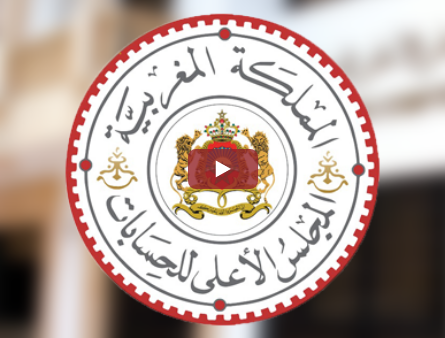Missions
Missions
The higher control of public finances is dictated by the requirements of good governance, transparency, and democracy. Hence, like all modern states, Morocco has endeavored to establish the Court of Auditors as a constitutional institution, entrusting it with the mission of overseeing the execution of finance laws, providing assistance to Parliament and the Government in its areas of competence, and reporting to His Majesty the King, may God assist him, on all its activities.
Similarly, aiming to promote decentralization policy, the Constitution has established regional courts of auditors, tasked with auditing the accounts and management of local authorities and their associations.
The higher control of public finances is dictated by the requirements of good governance, transparency, and democracy. Hence, like all modern states, Morocco has endeavored to establish the Court of Auditors as a constitutional institution, entrusting it with the mission of overseeing the execution of finance laws, providing assistance to Parliament and the Government in its areas of competence, and reporting to His Majesty the King, may God assist him, on all its activities.
Similarly, aiming to promote decentralization policy, the Constitution has established regional courts of auditors, tasked with auditing the accounts and management of local authorities and their associations.
The missions assigned to the Financial Jurisdictions have thus been better defined with the aim of ensuring the exercise of integrated and balanced control over all parties involved in the various acts of public finance management, namely: the authorizing officer, the controller, and the public accountant.
It should be noted that through these verifications, the control exercised by the Financial Jurisdictions is no longer primarily focused, as in the past, on the regularity and conformity of the various management acts, but now encompasses all other related aspects. Furthermore, this control favors an approach aimed at assessing the results achieved by the controlled public entities in terms of efficiency, economy, effectiveness, environment, and ethics (5Es).
While pursuing its fundamental objective of actively participating in the rationalization and optimization of the management of public funds, in an economic and financial context seeking performance both nationally and internationally, this control has expanded to new missions, including the control of political party expenses, the financing of electoral campaigns, and the mandatory declaration of assets. This expansion will undoubtedly strengthen transparency and the moralization of public life.
Les missions dévolues aux Juridictions Financières ont été, ainsi, mieux définies dans l’objectif d’assurer l’exercice d’un contrôle intégré et équilibré sur tous les intervenants dans les différents actes de gestion des finances publiques, à savoir : l’ordonnateur, le contrôleur, et le comptable public.
Il est à signaler qu’à travers ces vérifications, le contrôle exercé par les Juridictions Financières n’est plus focalisé essentiellement, comme par le passé, sur la régularité et la conformité des différents actes de gestion, mais qu’il embrasse dorénavant tous les autres aspects qui leur sont liés, En outre, ce contrôle privilégie l’approche visant l’appréciation des résultats atteints par les entités publiques contrôlées en terme d’efficacité, d’économie, d’efficience, d’environnement et d’éthique (5E).
Tout en poursuivant son objectif fondamental visant à participer activement à la rationalisation et l’optimisation de la gestion des deniers publics, dans un contexte économique et financier en quête de la performance tant à l’échelon national qu’international, ce contrôle s’est élargi à de nouvelles missions portant notamment sur le contrôle des dépenses des partis politiques, le financement des campagnes électorales et la déclaration obligatoire de patrimoine. Cet élargissement va sans aucun doute renforcer la transparence et la moralisation de la vie publique..

Verification and Adjudication of Accounts

Budgetary and Financial Discipline

Appeals of Rulings and Judgments
Verification and Judgment of Accounts
Budgetary and Financial Discipline
Appeals of Rulings and Judgments

